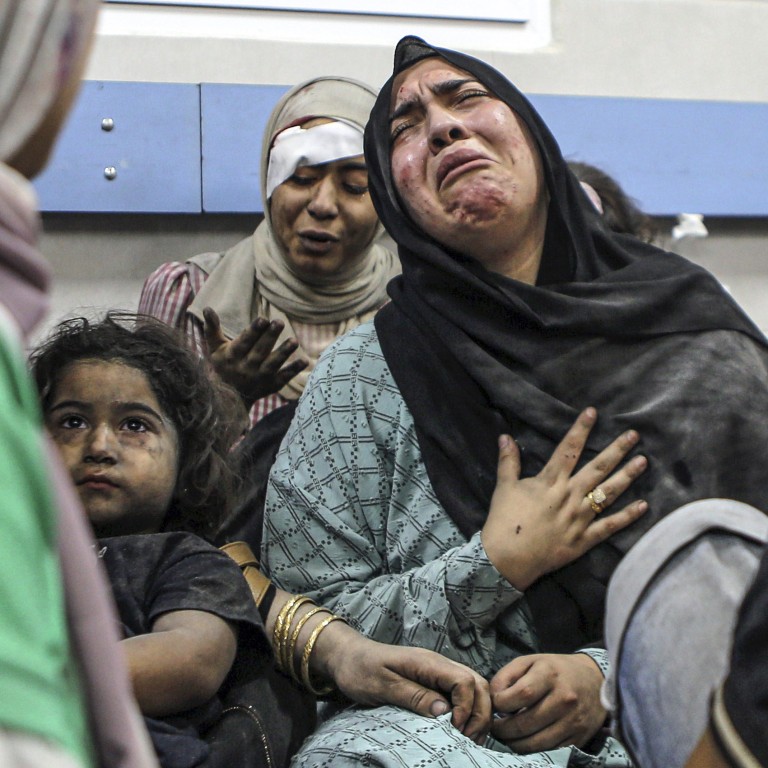
Israel wasn’t behind the Gaza hospital blast – but for some people, the facts don’t matter
- Online users who are convinced of Israel’s culpability have made up their minds along ideological grounds
- The incident also reflects traditional media’s rising irrelevance in an era dominated by celebrities and individual voices
Like many, I found myself in a whirlwind of rapidly changing reports as I scrolled through my news alerts on Wednesday morning.
The early reports by mainstream media – competing with social media posts – quoted Gaza authorities as saying the explosion was caused by an Israeli missile.
At one point, a Gaza health official put the casualty count at above 500. That too was prominently highlighted in news blasts.
Malaysia, Indonesia urge immediate Gaza ceasefire after hospital blast
This is not just because “that’s what the Americans say”.
Open-source intelligence practitioners parsing things like crater size, fragmentation and blast damage all say the explosion could not have been caused by an Israeli air strike. The analysis also suggests the 500 casualty figure may be a significant overestimate.
With something as fraught as this conflict, no amount of evidence can convince those whose views are shaped by the information – or disinformation – pushed out by the camp they back
For me, this point has been the top takeaway: with something as fraught as this conflict, no amount of evidence can convince those whose views are shaped by the information – or disinformation – pushed out by the camp they back.
On a separate front, the episode is another reminder of how difficult it is to report on a war when speculation flies thick and fast on social media while on-the-ground reporting remains an extremely perilous undertaking.
Much of the media we are consuming containing colour and images from Gaza are from Gazan journalists – and they, like the strip’s 2 million residents, are in a struggle for survival with water and power supply shut off.

Apart from these difficulties, there are two other factors – a pessimist would say both quite intractable – that probably will make Wednesday’s information maelstrom more the norm than an anomaly.
First of these is the overall decline in trust of traditional or mainstream media. The major players may devote a large amount of resources to fact-checking, open-source intelligence and other such functions in times of conflict – but what is the point if no one cares what they report?
In its annual Digital News Report published in June, the Reuters Institute for the Study of Journalism revealed survey findings that showed the number of people who access news through a website had dropped 10 points since 2018.
Israel-Hamas war divides Southeast Asia as trade, religion determine responses
Therein lies the second of the intractable problems: media outlets, including the prestigious ones, feel they have no choice but to compete with these individual voices when it comes to breaking news.
I am not optimistic that the industry has the collective self-awareness to get out of this self-afflicted vicious cycle to stem its slide to irrelevance.
Bhavan Jaipragas is the Post’s Asia Editor

